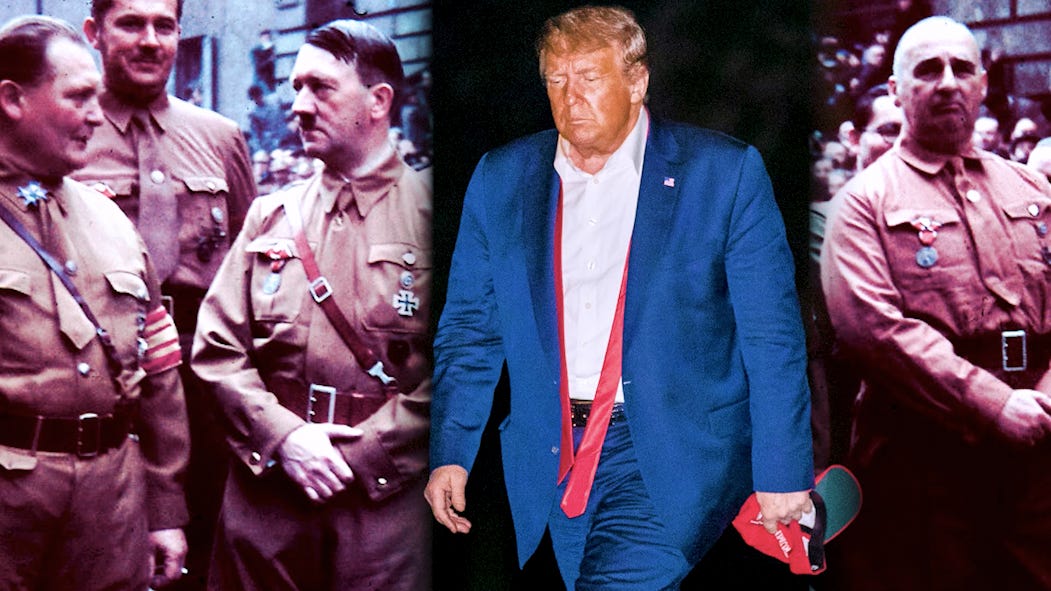Arrest Him Before He Becomes Hitler
After a failed coup d'état, America enters its post Beer Hall Putsch era.
Dash Dobrofsky | The Gen Z Perspective
The bloodcurdling rise of anti-Semitism in America brings haunting historical events to mind, particularly those that took place in the aftermath of World War I.
Specifically, the Beer Hall Putsch of 1923: an event where German civilian, Adolf Hitler — and north of three-thousand Nazis — stormed Munich in an attempted coup d'état to violently seize power. Anticlimactically, the coup would fail, and Hitler would be sentenced to 5 years in Landsberg Prison for Treason.
What appeared to be the end of the far-right National Socialist Party, however, was only its beginning.
Hitler went on to pen Mein Kampf from his cell, and German authorities went on to grant the treasonist an early release from Landsberg. In the end, Hitler served less than 9 months of his initial 60 month sentence.
Subsequently, with the help of far-right media, Hitler would craft his image as a political martyr, spreading his anti-Marxist, anti-Communist, and anti-Semitic message across Germany. Post-war inflation, high unemployment, and the forthcoming depression gave Hitler the ammunition to scapegoat the Weimar Republic as the catalyst for Germany’s inauspicious circumstances.
Once more, Hitler would attempt to seize power — this time through lawful means.
In April’s 1932 run-off election, Hitler achieved a mere 36% of the vote — losing to Germany’s incumbent President, Paul Von Hindenburg.
However, Hitler maintained a strong ideological grip over the Nazi faction in Germany — sizable enough to pose a threat to the Weimar Republic.
It has been documented that Paul Von Hindenburg believed he could control Hitler — as he weighed his options on how to quell a potential Nazi uprising in the wake of his re-election.



